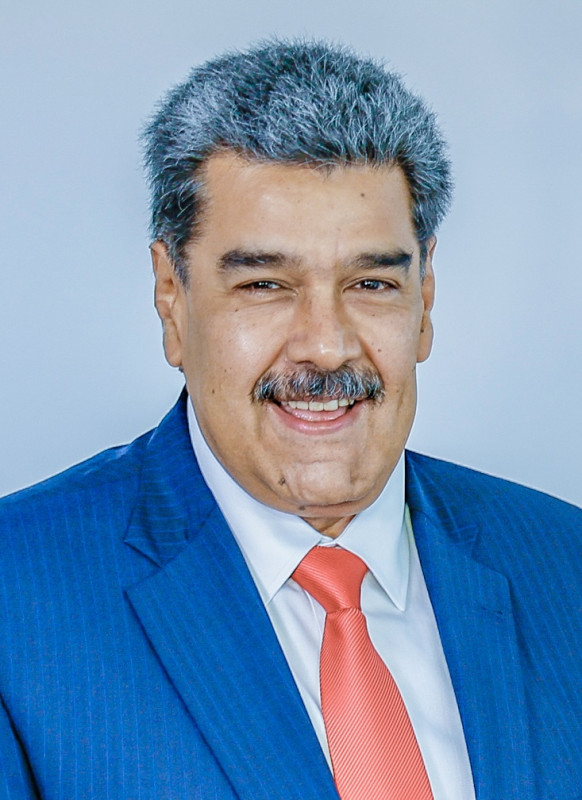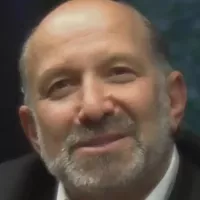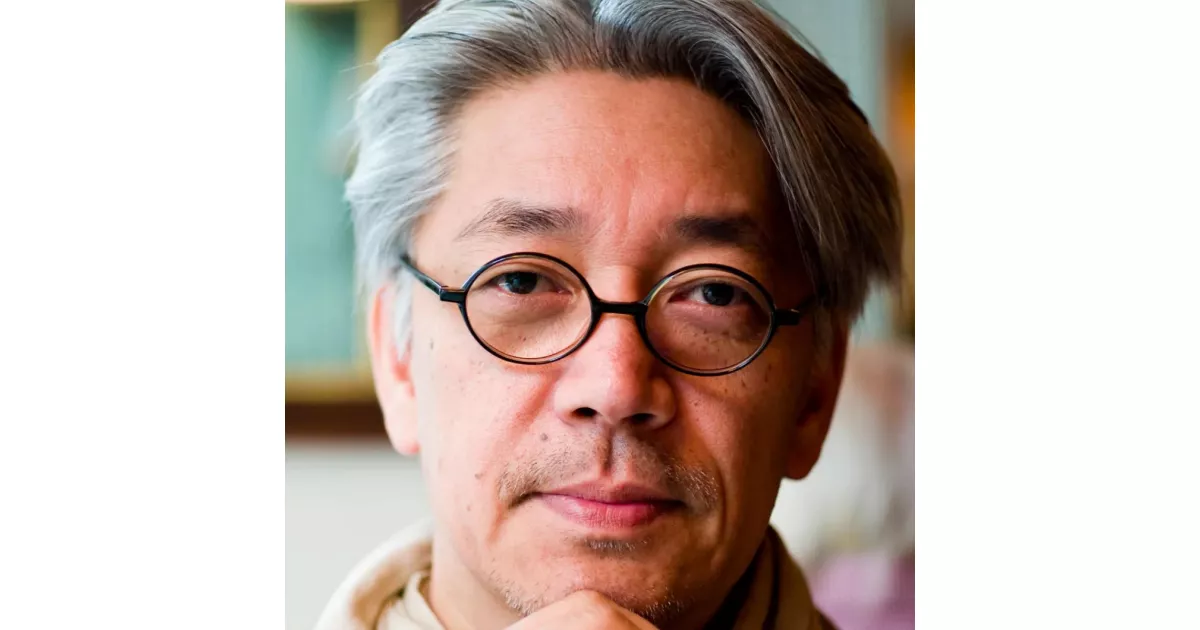Ryuichi Sakamoto was a highly influential Japanese composer, keyboardist, record producer, and actor. He achieved international recognition both as a solo artist and as a founding member of the pioneering synth-pop band Yellow Magic Orchestra (YMO). Alongside fellow YMO members Haruomi Hosono and Yukihiro Takahashi, Sakamoto played a crucial role in shaping and innovating numerous electronic music genres, leaving a lasting impact on the music industry.
January 17, 1952: Ryuichi Sakamoto's Birth
On January 17, 1952, Ryuichi Sakamoto was born in Japan. He would later become a renowned composer, keyboardist, record producer, and actor.
1970: Enters Tokyo National University of Fine Arts and Music
In 1970, Sakamoto entered the Tokyo National University of Fine Arts and Music, marking the beginning of his formal musical education.
1972: Marriage to Natsuko Sakamoto
In 1972, Sakamoto married Natsuko Sakamoto.
1974: B.A. in Music Composition
In 1974, Sakamoto earned a B.A. in music composition from the Tokyo National University of Fine Arts and Music.
1975: Collaboration with Tsuchitori Toshiyuki
In 1975, Sakamoto collaborated with percussionist Tsuchitori Toshiyuki to release 'Disappointment-Hateruma'.
1976: M.A. in Music
In 1976, Sakamoto earned a M.A. in music from the Tokyo National University of Fine Arts and Music, specializing in electronic and ethnic music.
1977: Session Musician Work
In 1977, Sakamoto worked as a session musician with Haruomi Hosono and Yukihiro Takahashi.
July 1978: Release of 'Thousand Knives of Ryūichi Sakamoto'
In July 1978, Sakamoto released his first solo album, 'Thousand Knives of Ryūichi Sakamoto'.
1978: Co-founding of Yellow Magic Orchestra (YMO)
In 1978, Sakamoto co-founded the synth-based band Yellow Magic Orchestra (YMO), marking a major milestone in his career.
1979: Release of 'Technopolis'
In 1979, Sakamoto composed 'Technopolis', which is credited as a contribution to the development of techno music.
1980: Release of 'B-2 Unit' Album
In 1980, Sakamoto released his solo album 'B-2 Unit', which included the track 'Riot in Lagos,' a significant contribution to the development of electro and hip hop music.
1980: Release of 'War Head/Lexington Queen' and Collaboration with David Sylvian
In 1980, Sakamoto released the single 'War Head/Lexington Queen' and began a long-standing collaboration with David Sylvian.
1980: Release of 'Riot in Lagos'
In 1980, Sakamoto released the track "Riot in Lagos", which was listed by The Guardian in 2011 as one of the 50 key events in the history of dance music.
1980: YMO live performance of 1000 Knives
In 1980, Yellow Magic Orchestra performed "1000 Knives" live.
1981: Release of 'BGM' by YMO
In 1981, Yellow Magic Orchestra released their album BGM which contains a version of Thousand Knives and an early use of the Roland TR-808 drum machine.
1982: Release of "Message II (Survival)" and "Magic's Wand"
In 1982, Melle Mel and Duke Bootee released "Message II (Survival)", and Whodini and Thomas Dolby released "Magic's Wand", which incorporated Sakamoto's squelching bounce sounds and mechanical beats.
1982: Divorce from Natsuko Sakamoto and Marriage to Akiko Yano
In 1982, Sakamoto divorced Natsuko Sakamoto and married Akiko Yano.
1982: Collaboration on 'Bamboo Houses/Bamboo Music'
In 1982, Sakamoto worked on another collaboration with David Sylvian, a single entitled "Bamboo Houses/Bamboo Music".
1983: Release of 'Al-Naafyish'
In 1983, Hashim's "Al-Naafyish" was released alongside "Riot in Lagos".
1983: Merry Christmas Mr. Lawrence
In 1983, Sakamoto composed the score and acted in Nagisa Oshima's "Merry Christmas Mr. Lawrence", also writing "Forbidden Colours" with David Sylvian.
1983: Produced Mari Iijima's Debut Album Rosé
In 1983, Sakamoto produced Mari Iijima's debut album Rosé.
1983: Starring in 'Merry Christmas, Mr. Lawrence'
In 1983, Sakamoto starred in 'Merry Christmas Mr. Lawrence', composed the film's musical score and collaborated with David Sylvian on the main theme.
1983: Release of 'Ongaku' and 'You've Got to Help Yourself'
In 1983, Sakamoto was the songwriter and composer for a number of YMO's songs, including "Ongaku" and "You've Got to Help Yourself".
1983: Release of 'Electric Kingdom'
In 1983, Twilight 22 released "Electric Kingdom", which incorporated Sakamoto's squelching bounce sounds and mechanical beats.
1984: Release of 'Ongaku Zukan'
In 1984, Sakamoto broadened his musical range with the release of 'Ongaku Zukan'.
1984: BAFTA Award for Merry Christmas, Mr. Lawrence
In 1984, Sakamoto won the BAFTA Award for Best Film Music for his score for "Merry Christmas, Mr. Lawrence,"
1985: Release of 'The Album'
In 1985, Kurt Mantronik released 'The Album', which incorporated Sakamoto's squelching bounce sounds and mechanical beats.
1985: Scoring 'Esperanto'
In 1985, Sakamoto was commissioned to score a dance composition by New York choreographer Molissa Fenley called Esperanto.
1985: Tokyo Melody Documentary
In 1985, Sakamoto was the subject of Elizabeth Lennard's documentary "Tokyo Melody", exploring his musical philosophy.
1987: The Last Emperor Academy Award
In 1987, Sakamoto composed the score for Bernardo Bertolucci's "The Last Emperor", winning an Academy Award with David Byrne and Cong Su.
1987: Release of 'Neo Geo'
In 1987, Sakamoto released the solo album 'Neo Geo'.
1987: Academy Award for 'The Last Emperor'
In 1987, Sakamoto won the Academy Award for Best Original Score for 'The Last Emperor', becoming the first Japanese composer to achieve this honor.
1989: BAFTA nomination
In 1989, Sakamoto received a BAFTA nomination for scoring "The Last Emperor".
1989: Release of 'Beauty'
In 1989, Sakamoto released the solo album 'Beauty'.
1990: Composing for 'The Sheltering Sky'
In 1990, Sakamoto composed the film score for 'The Sheltering Sky'.
1990: Move to New York City
In 1990, Sakamoto moved to New York City, where he lived until 2020.
1990: Golden Globe Award for The Sheltering Sky
In 1990, Sakamoto won the Golden Globe Award for his score for "The Sheltering Sky".
1991: Release of 'Heartbeat'
In 1991, Sakamoto released "Heartbeat" which features Sakamoto's collaborations with a global range of artists.
1991: High Heels Film Score
In 1991, Sakamoto scored Pedro Almodóvar's film "High Heels".
1992: Composition for Barcelona Olympic Games
In 1992, Sakamoto composed music for the opening ceremony of the Barcelona Summer Olympic Games.
1993: Roddy Frame on Working with Sakamoto
In 1993, Roddy Frame of Aztec Camera discussed his experience working with Sakamoto, noting his impressive compositions and atmosphere.
1993: Composing for 'Little Buddha'
In 1993, Sakamoto composed the film score for 'Little Buddha'.
1993: Grammy Nomination for Little Buddha
In 1993, Sakamoto received a Grammy Award nomination for his score for "Little Buddha".
1993: The Little Buddha and Wild Palms Film Scores
In 1993, Sakamoto scored Bertolucci's "The Little Buddha" and Oliver Stone's "Wild Palms".
1994: Co-produced Imai Miki's Album
In 1994, Sakamoto co-produced Imai Miki's album "A Place In The Sun".
1994: Release of 'Sweet Revenge'
In 1994, Sakamoto released "Sweet Revenge" which features Sakamoto's collaborations with a global range of artists.
1995: Release of 'Smoochy'
In 1995 Sakamoto released Smoochy, described as Sakamoto's "excursion into the land of easy-listening and Latin".
December 1996: Composed 'Untitled 01'
During December 1996 Sakamoto, composed the entirety of an hour-long orchestral work entitled "Untitled 01".
1996: Produced Miki Nakatani's Single
In 1996, Sakamoto produced "Mind Circus", the first single from actress Miki Nakatani, leading to a long-term collaboration.
1996: Bibo No Aozora Release
In 1996, Sakamoto released "Bibo No Aozora."
1997: Golden Nica Award
In 1997, Sakamoto's collaboration with Toshio Iwai, "Music Plays Images X Images Play Music", was awarded the Golden Nica at the Prix Ars Electronica competition.
1998: Release of 'Discord'
In 1998 Sakamoto released the album Discord, a recording that was condensed from nine live performances of the work, recorded during a Japanese tour.
1998: 'Ryuichi Sakamoto. Conversazioni' Published
In 1998, Italian ethnomusicologist Massimo Milano published Ryuichi Sakamoto. Conversazioni through the Padova, Arcana imprint.
1998: Love Is the Devil and Snake Eyes Film Scores
In 1998, Sakamoto scored John Maybury's "Love Is the Devil" and Brian De Palma's "Snake Eyes".
1999: Release of 'BTTB'
In 1999, Sakamoto released 'BTTB', a series of original pieces on solo piano influenced by Debussy and Satie.
1999: Gohatto Film Score
In 1999, Sakamoto scored Oshima's "Gohatto".
1999: 'Energy Flow' Tops Oricon Charts
In 1999, Sakamoto's composition 'Energy Flow' became the first instrumental number-one single in Japan's Oricon charts history.
2001: Release of 'Casa'
In 2001, Sakamoto teamed with cellist Jaques Morelenbaum and singer Paula Morelenbaum to record their first album, Casa.
2001: Collaboration with Miki Nakatani
Through 2001, Sakamoto continued his collaboration with Miki Nakatani, spanning 9 singles and 7 albums.
2002: Femme Fatale Film Score
In 2002, Sakamoto scored Brian De Palma's "Femme Fatale".
2002: 'Casa' included in The New York Times's Top Albums
In 2002, the album Casa was included in the list of The New York Times's top albums.
2003: Japanese Story Soundtrack
In 2003, a variation of "Chinsagu No Hana" was used in the soundtrack for Sue Brooks's "Japanese Story".
2004: Vrioon Album Release
In 2004, Sakamoto collaborated with Alva Noto to release "Vrioon", an album featuring Sakamoto's piano clusters treated by digital manipulation. The album was voted record of the year in the electronica category by The Wire.
2004: Release of Undercooled
In 2004, Sakamoto released "Undercooled".
2005: Insen Album Release
In 2005, Sakamoto and Alva Noto released "Insen", a minimalist album produced similarly to "Vrioon".
2005: Tony Takitani Film Score
In 2005, Sakamoto scored Jun Ichikawa's "Tony Takitani".
2005: Nokia Ringtones
In 2005, Sakamoto was hired by Nokia to compose ring and alert tones for their high-end Nokia 8800 phone.
August 2006: Divorce from Akiko Yano
In August 2006, Sakamoto divorced Akiko Yano after living separately for 14 years.
2006: Nokia Ringtones Available for Free
In 2006, Nokia offered Sakamoto's ringtones for free on their website.
2006: Contribution to Babel Soundtrack
In 2006, Sakamoto contributed to the Academy Award winning soundtrack for "Babel", including the closing theme "Bibo no Aozora".
2006: Founded commmons
In 2006, Sakamoto founded commmons with Avex Group, a record label designed as a collaborative platform for artists. Sakamoto envisioned commmons as a means to foster innovation and make meaningful contributions to culture and society.
2006: Babel Soundtrack
In 2006, a variation of "Bibo No Aozora" was used in the soundtrack for Alejandro González Iñárritu's "Babel".
2007: 'Riot in Lagos' on 'Kings of Electro' Compilation
In 2007, 'Riot in Lagos' was included in Playgroup's compilation album 'Kings of Electro'.
2007: LIFE Installation
In 2007, Sakamoto collaborated with Shiro Takatani on installations, including "LIFE – fluid, invisible, inaudible...", commissioned by YCAM, Yamaguchi.
2007: Release of Rescue
In 2007, Sakamoto reunited with YMO cofounders and they released the single "Rescue".
2007: Deconstruction of LIFE into Art Installation
In 2007, the visual images and sound from LIFE were "deconstructed" to create an art installation.
2008: utp_ Album Release
In 2008, Sakamoto and Alva Noto released "utp_", another collaboration album.
2008: Release of HAS/YMO
In 2008, Sakamoto and his YMO cofounders released a DVD, "HAS/YMO".
July 2009: Officier of Ordre des Arts et des Lettres
In July 2009, Sakamoto was honored as Officier of Ordre des Arts et des Lettres at the French embassy in Tokyo.
2009: Critic of Copyright Law
In 2009, Sakamoto argued that copyright law is antiquated in the Information Age.
2009: Ordre des Arts et des Lettres
In 2009, Sakamoto was awarded the Ordre des Arts et des Lettres from France's Ministry of Culture for his musical contributions.
2011: Summvs Album Release
In 2011, Sakamoto and Alva Noto released "Summvs", continuing their collaborative work.
2011: 'Riot in Lagos' Key Event in Dance Music History
In 2011, The Guardian listed the 1980 release of "Riot in Lagos" as one of the 50 key events in the history of dance music.
2012: Collapsed and Silence Spins Installation
In 2012, Sakamoto collaborated with Shiro Takatani for "collapsed and silence spins" at the Museum of Contemporary Art Tokyo.
2012: No Nukes 2012 Concert
In 2012, Sakamoto organized the No Nukes 2012 concert, featuring performances by 18 groups.
April 14, 2013: Performance of Nam June Paik's Film and Music
On April 14, 2013, Sakamoto participated in a performance of film and music by video pioneer Nam June Paik.
2013: LIFE-WELL Installation and Sharjah Biennial
In 2013, Sakamoto collaborated with Shiro Takatani for Sharjah Biennial (U.A.E.) and LIFE-WELL installation.
2013: Venice Film Festival Jury Member
In 2013, Sakamoto served as a jury member at the 70th Venice International Film Festival, where the jury viewed 20 films.
2013: Golden Pine Award
In 2013, Sakamoto won the Golden Pine Award (Lifetime Achievement) at the International Samobor Film Music Festival.
June 2014: Oropharyngeal Cancer Diagnosis and Break
Beginning in June 2014, Sakamoto took a year-long break after being diagnosed with oropharyngeal cancer.
2014: LIFE-WELL for Park Hyatt Tokyo's Anniversary
In 2014, Sakamoto and Shiro Takatani created a special version of LIFE-WELL for Park Hyatt Tokyo's 20th anniversary.
2014: Sapporo International Art Festival Director & Cancer Diagnosis
In 2014, Sakamoto became the first guest artistic director of the Sapporo International Art Festival. In late June 2014, he was diagnosed with oropharyngeal cancer and announced a break from work.
August 3, 2015: Return to Work
On August 3, 2015, Sakamoto announced his return to work after cancer treatment and that he would be providing music for Yoji Yamada's "Haha to Kuraseba" (Living with My Mother).
2015: Composing for 'The Revenant'
In 2015, Sakamoto composed the film score for 'The Revenant'.
2015: Music for ST/LL Performance
In 2015, Sakamoto provided music for Shiro Takatani's performance "ST/LL".
2015: Return from Break
In 2015, Sakamoto returned from his break, discussing his health and the potential for cancer recurrence.
2015: The Revenant Score
In 2015, Sakamoto scored Iñárritu's film "The Revenant".
2015: Support Against Base Relocation
In 2015, Sakamoto supported opposition to the relocation of Marine Corps Air Station Futenma.
2015: Nominations and Award for The Revenant
In 2015, Sakamoto's score for "The Revenant" was nominated for the Golden Globe and BAFTA, and won Best Musical Score from the Dallas–Fort Worth Film Critics Association.
2016: Sakamoto Reflects on Working with David Bowie
In a 2016 interview, Sakamoto reflected on his time acting in the film 'Merry Christmas, Mr. Lawrence', and working with David Bowie.
January 2017: Async Album Announcement
In January 2017, it was announced that Sakamoto would release a solo album in April 2017 through Milan Records; the new album, titled async.
March 29, 2017: Async Album Release
On March 29, 2017, async was released to critical acclaim.
April 2017: Solo Album Release
In April 2017, Sakamoto released his solo album, "async", through Milan Records.
2017: The Fortress Film Score
In 2017, Sakamoto scored Hwang Dong-hyuk's "The Fortress".
February 2018: Berlin International Film Festival Jury
In February 2018, Sakamoto was selected to be on the jury for the main competition section of the 68th Berlin International Film Festival.
June 14, 2018: Ryuichi Sakamoto: Coda Documentary Release
On June 14, 2018, "Ryuichi Sakamoto: Coda", a documentary about Sakamoto's life and work, was released.
2020: Minamata Film Score
In 2020, Sakamoto scored Andrew Levitas's "Minamata".
January 21, 2021: Rectal Cancer Diagnosis
On January 21, 2021, Sakamoto announced that he had been diagnosed with rectal cancer and was undergoing treatment.
2021: Associate Artist at Holland Festival
In 2021, Sakamoto was the associate artist of Holland Festival in Amsterdam where he presented the world premiere of TIME, his last collaboration with Shiro Takatani.
2022: Dumb Type Installation
In 2022, Sakamoto took part in the creation of Dumb Type's new installation 2022 as a new member of the Japanese collective, for the Japan Pavilion at the 59th International Art Exhibition – La Biennale di Venezia.
March 2023: Letter to Governor Koike
In early March 2023, Sakamoto sent a letter to Tokyo Governor Yuriko Koike calling for the suspension and review of the planned redevelopment of the Jingūmae neighborhood.
March 28, 2023: Ryuichi Sakamoto's Death
On March 28, 2023, Ryuichi Sakamoto died at the age of 71 after battling colorectal cancer.
March 28, 2023: Death of Ryuichi Sakamoto
Ryuichi Sakamoto died on March 28, 2023 from colorectal cancer at the age of 71.
April 24, 2023: Snooze Release by Agust D (Suga of BTS)
On April 24, 2023, the song "Snooze" was released by Agust D (Suga of BTS), in loving memory of Ryuichi Sakamoto, in which he is featured in the song as keyboards.
2023: Monster Film Score
In 2023, Sakamoto's final score was released in Hirokazu Kore-eda's film, "Monster".
2023: Ryuichi Sakamoto: Opus Premiere
In 2023, filmmaker Neo Sora directed a final performance of Sakomoto playing solo piano, released as Ryuichi Sakamoto: Opus. It premiered at the Venice Film Festival in 2023.
Mentioned in this timeline

David Bowie David Robert Jones was a highly influential English...

Christmas is an annual festival celebrated on December th commemorating...
The Guardian is a British daily newspaper founded in as...
Japan is an East Asian island country located in the...

Football is a family of team sports primarily involving kicking...

Barcelona is a major city located on the northeastern coast...
Trending

4 minutes ago Space Force Upgrades, Battle Management, and Role in Raids Spark Resource Push
4 minutes ago Kootenai County Deputies and Firefighter Honored with Medals of Honor for Bravery

5 minutes ago Venezuela's history, US aggression, and Trump's oil interests fuel ongoing tensions with Nicolás Maduro.

5 minutes ago Witkoff discusses Iran's nuclear program and Trump's approach amidst ongoing protests.

1 hour ago Howard Lutnick Faces Scrutiny Over Epstein Ties; College Library Name in Question.

2 hours ago Trump Considers Vance, Rubio for 2028; MAGA Heirs Guess Future Plans.
Popular

Jesse Jackson is an American civil rights activist politician and...

Susan Rice is an American diplomat and public official prominent...

Barack Obama the th U S President - was the...

Michael Joseph Jackson the King of Pop was a highly...

Bernie Sanders is a prominent American politician currently serving as...

XXXTentacion born Jahseh Dwayne Ricardo Onfroy was a controversial yet...
